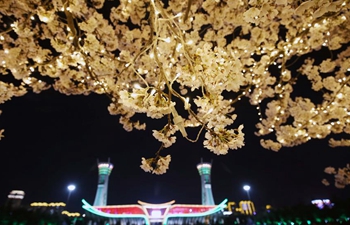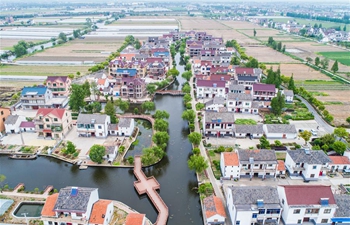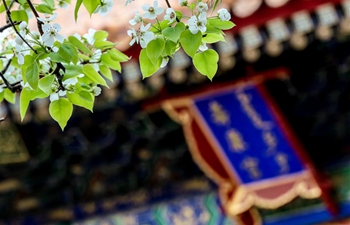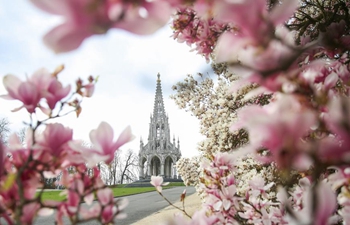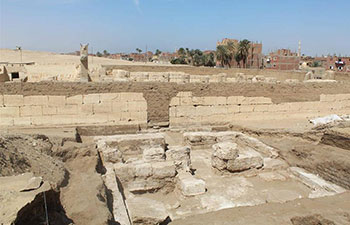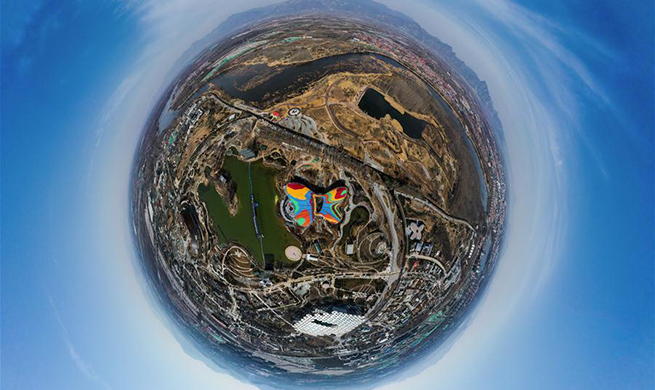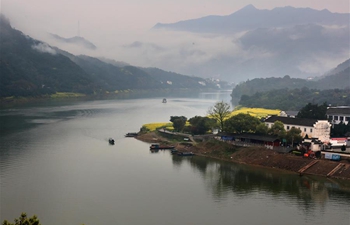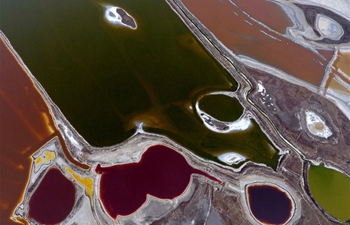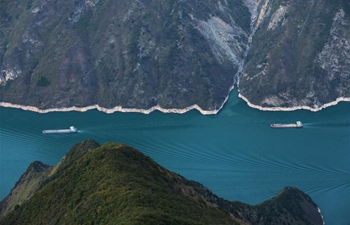ROME, March 29 (Xinhua) -- An ancient Roman snack bar, or Thermopolium, has come to light during excavations at the Pompeii archeological site on the Bay of Naples in southern Italy, archeologists announced Friday.
Thermopolia were outdoor places where drinks and hot foods were served. These goods were stored in large dolia (jars) which were embedded in the masonry serving counter.
Such establishments were located all over the ancient Roman world, with around 80 discovered at Pompeii alone, the Pompeii Archeological Park said in a statement.
As shown in photographs uploaded on Twitter on the Park's official account, the counter of the snack bar is decorated on side by a painting of the beautiful figure of a Nereid, or sea nymph, on horseback in a marine environment.
She is partially draped in a yellow garment and holds a lyre, the musical instrument sacred to Apollo, the ancient Greek god of light, music, and medicine, and is accompanied by a pair of dolphins diving gracefully in and out of the water.
In ancient Greek mythology, the Nereids often accompany Poseidon, the god of the sea, and can be friendly and helpful to sailors.
The other side of the counter features a painting of a Thermopolium with its vases and jars, which archeologists believe could be an illustration of the business conducted at the snack bar, almost as if it were a shop sign.
The discovery of amphorae, which were located in front of the counter, reflected the painted image exactly, the Pompeii Archeological Park statement said.
The Thermopolium emerged at the crossroads between Vicolo delle Nozze d'Argento (the Silver Wedding Alley) and Vicolo dei Balconi (the Alley of Balconies) and it lies along one of the excavation fronts of the Great Pompeii Project, archeologists said.
The discovery of the Thermopolium "along with objects which went hand in hand with commercial and thus daily life, continue to transmit powerful emotions that transport us to those tragic moments of the eruption, which nonetheless left us unique insights into Roman civilisation," said interim Pompeii Archeological Park director Alfonsina Russo in a statement.
The site of the ancient Roman town, which was preserved in lava after Mount Vesuvius erupted in the year 79 AD, is a UNESCO World Heritage site.
